On the afternoon of September 19, 2024, the 25th Shizi Gate Distinguished Lecture (the 1st session of the 2024-2025 academic year) was successfully held in N101 Lecture Hall, Block N. The event was organized by the Faculty of Law of Macau University of Science and Technology (MUST). This distinguished lecture invited Prof. Dr. Dr. Eric Hilgendorf from the Faculty of Law of University of Würzburg, Germany, as the guest speaker. The lecture was titled “Negligence-New Challenge for Criminal Law Doctrine.” This event was sponsored by the Macau University of Science and Technology Foundation.
Prof. Dr. Dr. Eric Hilgendor holds dual doctorates in law and philosophy. He previously served as the dean of the Faculty of Law of University of Würzburg in Germany. Currently, he is a member of the German Academy of Science and Engineering (Acatech), the European Union High-Level Expert Committee on Artificial Intelligence (EU-HLEG), and the Bavarian State Committee on Artificial Intelligence (KI-Rat). He is also the founder and first director of the Bavarian Research Institute for Digital Transformation (BIDT). Additionally, he is a professor of criminal law, criminal procedure law, jurisprudence, information law, and legal informatics at the University of Würzburg, where he also directs the Robotics Law Research Centre. Prof. Dr. Dr. Eric Hilgendor has published extensively, and many of his notable works have been translated into Chinese.
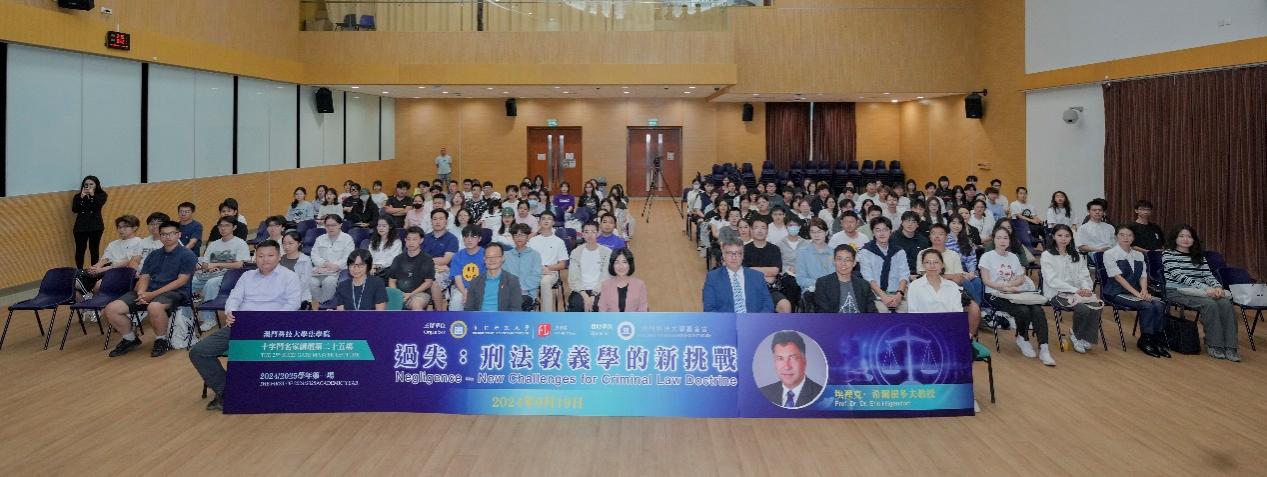
Figure I
Group Photo of the Entire Venue
At the beginning of the event, Dean Fang Quan of the Faculty of Law delivered a welcome speech and presented souvenirs on behalf of the faculty to express appreciation to the guest speaker, Prof. Dr. Dr. Eric Hilgendorf, for traveling to the Faculty of Law. Additionally, Dean Fang conveyed his gratitude in advance for Professor Hilgendorf’s insightful lecture to the faculty and students. In return, Prof. Dr. Dr. Eric Hilgendorf brought a copy of his book, “Digitalisierung, KI und Strafrecht” (Chinese version), which he presented to the Faculty of Law of MUST as a gesture of thanks.
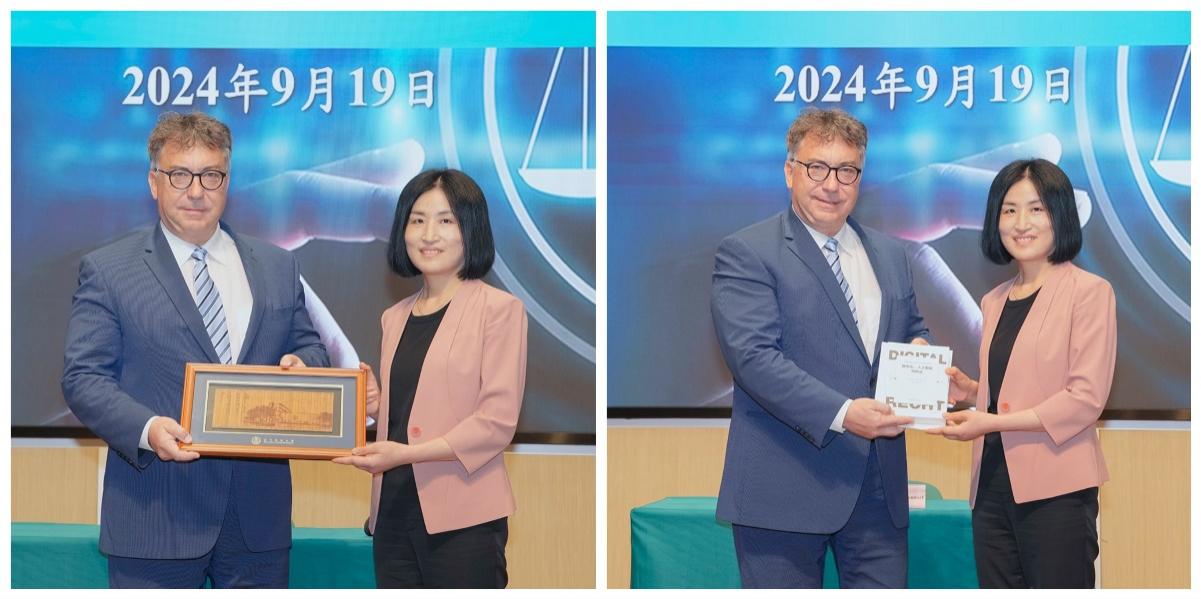
Figures II to III
Prof. Dr. Dr. Eric Hilgendor (left) and Dean Fang Quan (right) exchanged souvenirs with one another.
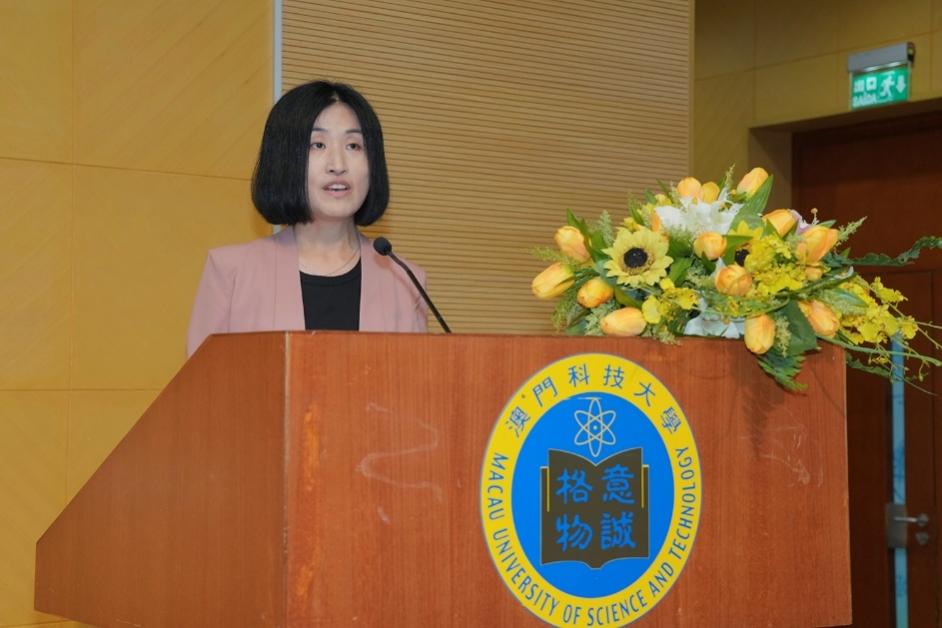
Figure IV
Dean Fang Quan delivered a welcoming speech.
In the lecture, Prof. Dr. Dr. Eric Hilgendorf began with the two-level concept of negligence, arguing that negligence is not merely a form of guilt but an independent entity with a comprehensive structure of illegality and culpability. From this perspective, Professor Hilgendorf introduced the fundamental framework for assessing criminal negligence within legal doctrine, particularly emphasizing the distinction between recognized and unrecognized faults. He asserted that the evaluation of the duty of care is both the focal point and the most challenging aspect of negligence analysis. Professor Hilgendorf examined the duty of care from three levels: whether there is a duty of care, the intensity of that duty, and the limitations on the scope of the duty of care as dictated by the principles of permissible risk and reliance. Additionally, he addressed recent controversies and discussions in the realm of criminal negligence, including the implications of third-party conduct and the concept of joint negligence crimes. In exploring contemporary issues in criminal negligence, Professor Hilgendorf referenced a significant case in the context of Germany's autonomous driving legislation, discussing the definition of criminal liability concerning damages caused by autonomous vehicles under Germany's new Road Traffic Act. He systematically elaborated on the new rules for determining negligence in the fields of artificial intelligence and autonomous driving, advocating for flexibility in the assessment of fault to accommodate the advancement of new technologies and to prevent excessive penalties.
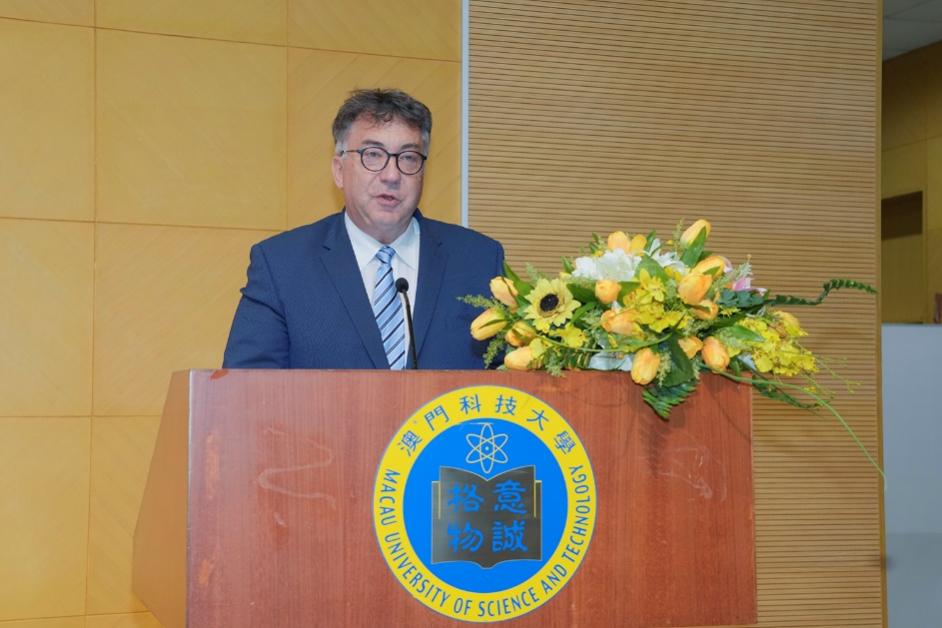
Figure V
Prof. Dr. Dr. Eric Hilgendorf was delivering a lecture.
Dean Fang Quan, Assistant Dean Yi Zaicheng, Assistant Professor Xue Wenchao, Assistant Professor Chen Qin, Assistant Professor Guo Yiting from the Faculty of Law of Macau University of Science and Technology, and Dr. Liu Chang, Assistant Researcher at the Robotics Law Research Centre of the University of Würzburg, Germany, nearly 200 students from the Faculty of Law attended the forum.
The entire forum lasted for two and a half hours. Teachers, students, and Prof. Dr. Dr. Eric Hilgendorf actively engaged with one another, creating a particularly vibrant academic atmosphere.
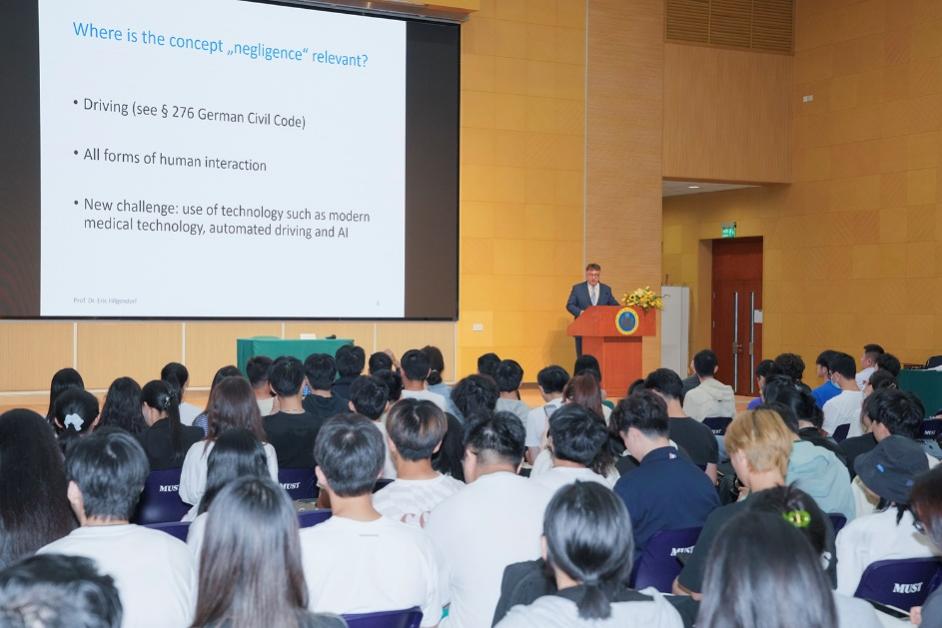
Figure VI
The Venue of Event

Figures VII to IX
Interactive questions




